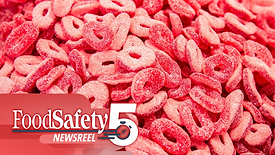Ingredients
Cannabis Innovation From a Regulator's Perspective
Each novel cannabis product that hits the marketplace introduces a new series of questions regarding product safety and efficacy
February 10, 2025
Never miss the latest news and trends driving the food safety industry
eNewsletter | Website | eMagazine
JOIN TODAY!Copyright ©2025. All Rights Reserved BNP Media.
Design, CMS, Hosting & Web Development :: ePublishing











